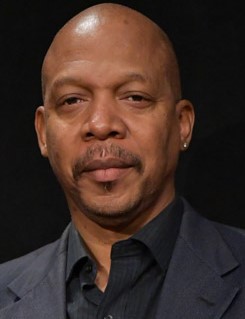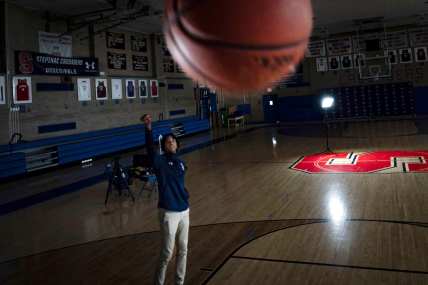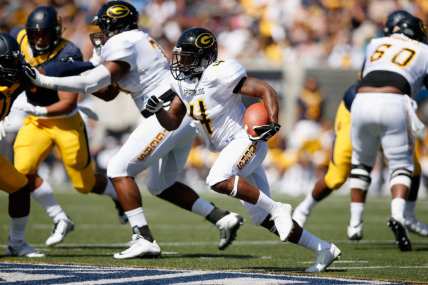Amateur athletes deserve to secure all the bags they can with NIL deals
OPINION: The NCAA needs to stay out of athletes’ pockets after sewing them tight for so long.

Editor’s note: The following article is an op-ed, and the views expressed are the author’s own. Read more opinions on theGrio.
There’s never been a better time for young stars in the multibillion-dollar college sports industry. But this being America 2022, we see efforts to turn back the clock.
A few years ago, financial compensation for college athletes was illicit and strictly under the table. Today, top players are paid in open-air transactions with a trail of authorized direct deposits.
USC quarterback Caleb Williams is conducting a master class on getting bags while high schoolers don’t have to wait. Five-star shooting guard Jared McCain, a Duke signee, is among several prep stars stacking paper in California, a forerunner among states allowing name, image and likeness (NIL) deals for college athletes and recruits.
I figured this free market wouldn’t last long before the NCAA and associates—officials, coaches, and conference directors—pushed back. But barely three years? Reconstruction lasted a dozen. This ride just began, and haters are already pumping the breaks.
“I think we all agree that there should be a few very definitive limitations on (NIL) to prevent schools from buying kids or pay-for-play,” Pac-12 commissioner George Kliavkoff told the Associated Press.
No, we don’t all agree. The young adults—not kids—should have the right to earn as much as possible, just like their peers who don’t play sports. More than 100 years late, these newfound gains must stay and grow. Progress won’t erase the stain, but moving forward is the preferable direction.
Jackson State University football coach Deion Sanders joined a chorus of other coaches complaining about NIL, though using a different approach. He tweeted on Wednesday that NIL is a problem and he’s trying to help the NCAA “before it blows up in your face.
“Money Makes You More Of Who You Really Are. Now think about that for a minute,” he tweeted.
He’s right about money not changing people as much as revealing their true character. And what? All sorts of people make money in this society. Some are perfectly fine and some are perfectly terrible. Rain falls on the just and unjust.
Big-time college athletes are front-line workers, essential in their field. They deserve to enjoy a bounty from the billions earned nationally and regionally. I’m here for athletes getting every cent, no matter how absurd—even a reported $8 million. The NCAA needs to stay out of athletes’ pockets after sewing them tight for so long.
The industry has the nerve to even open its mouth.
Privilege is paying workers nothing and complaining their tips are too high.
Spoiled rotten over the last century, the NCAA is acting like a little brat who’s forced to share market principles with the help’s kids. Who knew location is everything? Williams sparked his come-up by transferring from dusty Oklahoma to dazzling L.A.
He didn’t need an MBA to see savvy business moves. Neither did Pitt sophomore Jordan Addison, who won the Biletnikoff Award last season as the nation’s top wide receiver. With his quarterback off to the NFL, Addison has entered the transfer portal and attracted several thirsty suitors, including USC.
Wherever he lands, you know a NIL bag awaits, which is making powerbrokers white-hot.
Kliavkoff and his Pac-12 counterpart, wanting to clamp down, recently headed to Washington, D.C., seeking help from Congress. “The amount of a NIL payment should be commensurate with the work done as a backstop to make sure we’re not using it related to inducement and pay-for-play,” Kliavkoff told ESPN.
The NCAA on Monday announced new guidelines regarding NIL aimed at inducements and collective efforts that have sprouted across the country. It’s worried about NILs’ effect on recruiting, like Texas forming a charity that provides at least a $50,000 scholarship to offensive linemen and subsequently signing a wave of blue-chip offensive linemen.
I don’t see the problem here besides cutting into power brokers’ take.
Boosters are financial lifelines in big-time college sports, driving forces whose names adorn athletic facilities. But now, these deep-pocket fans can cut their check to a player instead of handing it to the athletic department for a new weight room or player lounge.
NIL deals might rival donations, and that’s not the type of equity the NCAA supports.
Consider it a form of reparations.
Athletes have been the only folks on campus historically stripped of their name, image, and likeness—rights granted at birth. Equally foul, the threat of punishment (sitting out one season) historically restricted competition for their services until last year. Compared to non-athletes, staffers, and faculty members—all free to earn and move on without second thought—athletes have been treated like second-class citizens.
Now that these athletes have enjoyed a minute up front, with the plush seats, free drinks and extra legroom, the establishment wants to usher them back?
I generally don’t endorse commotions. But tussling to remain seated is justified in this case.
Correction: May 20, 2022, 1:20 p.m. ET: An earlier version of this story misidentified Pitt sophomore Jordan Addison. The story has been updated.

An award-winning columnist and a principal of BlackDoor Ventures, Inc., Deron Snyder is a veteran journalist, stratcomm professional, author, and adjunct professor. A native of Brooklyn and an Alpha from H.U.-You Know, he resides in metropolitan DC with his wife, Vanessa, mother of their daughters, Sierra and Sequoia. To learn more, please visit blackdoorventures.com/deron.
TheGrio is FREE on your TV via Apple TV, Amazon Fire, Roku, and Android TV. Please download theGrio mobile apps today!
More About:Sports











